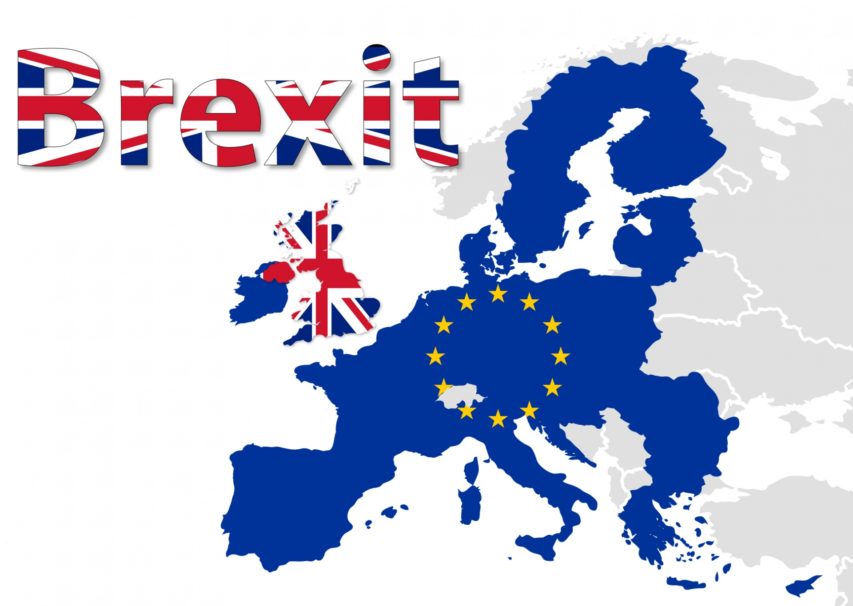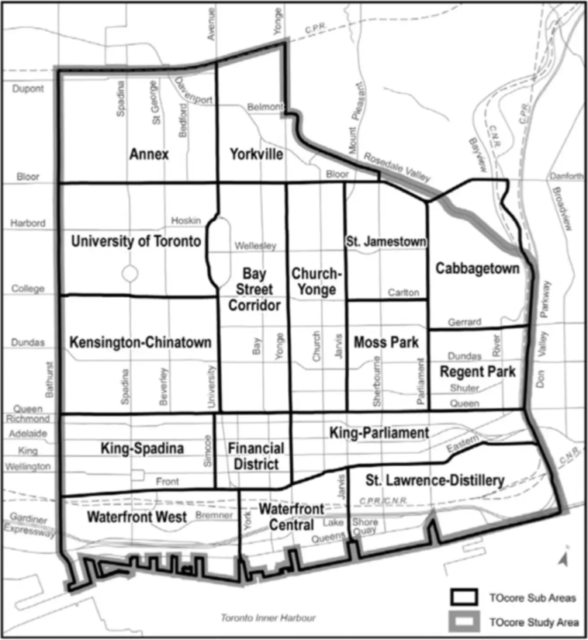I think that a number of factors will ultimately tamp it down [campus protests/riots]. The ability of people to record videos of police has been a tremendous spur to calls for reform. But police are not the only people who can be filmed in public; so can protesters. I suspect that as people discover what can happen when future employers google up videos of you shouting “[expletive deleted] the police” or screaming at professors and speakers, the costs of this sort of protest will rise, and there will be less of it. Moreover, I suspect that both alumni and state funding for schools where this sort of thing happens a lot will often decline, putting pressure on administrators to curb it.
Megan McArdle, “Ask Me Anything”, Reddit, 2017-04-10.
April 19, 2019
QotD: The revolution will be YouTubed, which might snuff it out before it gets underway
April 2, 2019
QotD: The legacy of the soixante-huitards
It is one of the theses of this lucid book that the generation of May 1968 — or at any rate its leaders — has arranged things pretty well for itself, though disastrously for everyone else. If it has not been outright hypocritical, it has at least been superbly opportunist. First it bought property and accumulated other assets while inflation raged, paying back its debts at a fraction of their original value with depreciated money; then, having got its hands on the assets, it arranged for an economic policy of low inflation except in the value of its own assets. Moreover, it also arranged the best possible conditions for its retirement, in many cases unfunded by investment and paid for by those unfortunate enough to have come after them. They will have to work much longer, and if ever they reach the age of retirement, which might recede before them like a mirage in the desert, it will be under conditions much less generous than those enjoyed by current retirees.
It matters little whether this was all part of a preconceived plan or things just fell out this way, for that is how things now are. The result is that what was always a class society is in the process of becoming a caste society, in which only children of the already well-off have a hope of owning their own house.
Theodore Dalrymple, “Beneath Paris”, Taki’s Magazine, 2017-01-07.
March 31, 2019
QotD: Gandhi’s not-so-non-violent followers
… it is not widely realized (nor will this film tell you) how much violence was associated with Gandhi’s so-called “nonviolent” movement from the very beginning. India’s Nobel Prize-winning poet, Rabindranath Tagore, had sensed a strong current of nihilism in Gandhi almost from his first days, and as early as 1920 wrote of Gandhi’s “fierce joy of annihilation,” which Tagore feared would lead India into hideous orgies of devastation — which ultimately proved to be the case. Robert Payne has said that there was unquestionably an “unhealthy atmosphere” among many of Gandhi’s fanatic followers, and that Gandhi’s habit of going to the edge of violence and then suddenly retreating was fraught with danger. “In matters of conscience I am uncompromising,” proclaimed Gandhi proudly. “Nobody can make me yield.” The judgment of Tagore was categorical. Much as he might revere Gandhi as a holy man, he quite detested him as a politician and considered that his campaigns were almost always so close to violence that it was utterly disingenuous to call them nonviolent.
For every satyagraha true believer, moreover, sworn not to harm the adversary or even to lift a finger in his own defense, there were sometimes thousands of incensed freebooters and skirmishers bound by no such vow. Gandhi, to be fair, was aware of this, and nominally deplored it — but with nothing like the consistency shown in the movie. The film leads the audience to believe that Gandhi’s first “fast unto death,” for example, was in protest against an act of barbarous violence, the slaughter by an Indian crowd of a detachment of police constables. But in actual fact Gandhi reserved this “ultimate weapon” of his to interdict a 1931 British proposal to grant Untouchables a “separate electorate” in the Indian national legislature — in effect a kind of affirmative-action program for Untouchables. For reasons I have not been able to decrypt, Gandhi was dead set against the project, but I confess it is another scene I would like to have seen in the movie: Gandhi almost starving himself to death to block affirmative action for Untouchables.
From what I have been able to decipher, Gandhi’s main preoccupation in this particular struggle was not even the British. Benefiting from the immense publicity, he wanted to induce Hindus, overnight, ecstatically, and without any of these British legalisms, to “open their hearts” to Untouchables. For a whole week Hindu India was caught up in a joyous delirium. No more would the Untouchables be scavengers and sweepers! No more would they be banned from Hindu temples! No more would they pollute at 64 feet! It lasted just a week. Then the temple doors swung shut again, and all was as before. Meanwhile, on the passionate subject of swaraj, Gandhi was crying, “I would not flinch from sacrificing a million lives for India’s liberty!” The million Indian lives were indeed sacrificed, and in full. They fell, however, not to the bullets of British soldiers but to the knives and clubs of their fellow Indians in savage butcheries when the British finally withdrew.
Richard Grenier, “The Gandhi Nobody Knows”, Commentary, 1983-03-01.
March 25, 2019
The Boston Massacre – Snow and Gunpowder – Extra History
Extra Credits
Published on 23 Mar 2019Boston, 1770. A frigid winter night. A British sentry strikes a local citizen. Civilians begins to gather. Reinforcements arrive to back up the young sentry. Insults and snowballs escalate. Then out of the darkness comes a shout: “FIRE!”
The Boston Massacre didn’t come out of nowhere — resentment between the early US colonies and the British army had been brewing for some time over the Stamp Act. A propaganda war ensued between the loyalists and the radicals. John Adams would get his revolutionary start as he worked to resolve this injustice…
Join us on Patreon! http://bit.ly/EHPatreon
March 17, 2019
Irish Potato Famine – The Young and the Old – Extra History – #5
Extra Credits
Published on 16 Mar 2019Irish leaders entered the picture when the 1847 Poor Laws backfired, leading landowners to mass-evict their starving tenants. Daniel O’Connell tried to maintain an alliance with the Whigs, and failed. The Young Irelanders split off from the Repeal Association, and as a result, both the rebellious and the moderate minds of the country lost significant traction, unable to fight the famine alone.
March 15, 2019
QotD: Gender correctness
Five years ago, if someone had told you it would soon become tantamount to a speechcrime to say ‘There are two genders’, you would have thought them mad.
Sure, we live in unforgivably politically correct times. Ours is an era in which the offence-taking mob regularly slams comedians for telling off-colour jokes, demands the expulsion from campus of speakers who might offend students’ sensibilities, and hollers ‘Islamophobe’, ‘homophobe’ or ‘transphobe’ at anyone who transgresses their moral code on anything from same-sex marriage to respecting Islam. (A phobia, we should always remind ourselves, is a mental malaise, a disturbance of the mind. How very Soviet Union to depict your opponents essentially as mentally diseased.)
And yet for all that, surely it would never become a risky business to utter the opinion: ‘There are men and women and that’s all.’ Well, that has now happened. It is now looked upon as hateful, sinful and phobic, of course, to express a view that has guided humanity for millennia: that humankind is divided into two sexes, and they are distinctive, and one cannot become the other.
Say that today in a university lecture room packed with right-on millennials and watch their faces contort with fury. Write it in a newspaper column or blog post and witness the swift formation of a virtual mob yelling for you to be fired. Say it on TV and there will be protests against you, petitions, demands that you and your foul, outdated ideology be denied the oxygen of televisual publicity.
Brendan O’Neill, “It isn’t TERFs who are bigoted – it’s their persecutors”, Spiked, 2019-01-28.
March 5, 2019
If Brexit doesn’t happen, will there be a meaningful reaction?
The British government under Prime Minister Theresa May believes — or appears to believe — that with sufficient delay, muddle, and obfuscation, the voters will mutter and grumble but in the end do nothing. David Betz and MLR Smith believe differently:
What do you get when you have a Conservative party that doesn’t conserve, a Labour party that doesn’t represent the interests of the working class, and a Liberal Democrat Party that is neither liberal nor democratic?
The answer is, a pretty accurate description of the current British political landscape. Here are different kinds of political ice cream for sale, but when licked they all turn out to have roughly the same unpalatable taste: a bland, socially progressive, anti-traditionalist, globalist, corporatist flavour. And, you the people, don’t ask for anything else! We know how to make ice cream. You don’t.
Of course, it is Brexit and the reactions of the political classes to it, that most clearly reveals the startling democratic deficit in the United Kingdom. Brexit is, though, not the cause of political strife. It is merely the symptom that has brought these latent anti-democratic inclinations to the surface. Arguably, they have always been there in one form or another since ancient times.
In November 2016, Nigel Farage told the BBC’s Andrew Marr: ‘Believe you me, if the people in the country think they’re going to be cheated, they’re going to be betrayed, then we will see political anger the likes of which none of us in our lifetimes have ever witnessed in this country’. It was an obvious point and true. Yet the striking thing about such a warning has been the degree to which national politicians and media have tried to ignore it.
How, we might wonder, has it all come to this and, just as vitally, what are the possible long-term consequences?
The government is gambling that reaction will be fierce, but localized and short-lived, and that the establishment can ride out the storm with little or no real problem. They may be seriously underestimating the anger and resentment of a voting public who are being explicitly denied the outcome they chose. But will there be serious outbreaks of violence?
Cumulatively, over the past three decades, then, the empirically demonstrable lesson is that violence and threats work. Crudely, there is simply no arguing with the fact that violence is the deus ex machina for changing the way people think and act. Physical force is a method of political communication, and when it is sustained it invariably succeeds in changing minds and changing policies.
Under the threat of violence, it is often easier for governments to knuckle under for the sake of maintaining a semblance of peace, to wax piously about societal cohesion and resilience, and to climb onwards as though the status quo ante were not crumbling beneath them. The progressive factions of academia, culture, and media cheer them for it. So, if the populace don’t really react in the face of such threats and actual violence, and merely light candles and hug teddy bears, then the bet of the political classes is sustained. They have gambled correctly.
But do enough people feel that violence is their only resort when the government refuses to do what the voters want? Might things go beyond mere loud, angry protests and transition towards rioting? Worse?
Thus, we come to the ultimate gamble of the political class, one that appears strongly to be operative in the minds of many in Parliament, namely, that Britons do not rebel and, therefore, faced with a fait accompli they will lump it even if they do not like it. Unlike the French, Italians, or Germans each of which nation is prone in its own way to violent mass spasms of political passion, the British are a phlegmatic people given to the sensible path. So the cliché goes.
It is true to an extent that revolution is a continental phenomenon that does not travel well across the English Channel — British governments have been better at responding to incipient uprisings, sometimes deflecting them, betimes co-opting their leaders, but mostly muddling through by accommodating their demands within the parameters of the status quo. This is a system that has succeeded precisely because parliamentary democracy, for over 300 years now, is able to internalise the will of the people, even when faced with threats of violent revolt, be it in the demands of Chartists, Irish nationalists or suffragettes.
Should we be so sanguine to believe that the British political system, for so long a beacon of stability, is immune from the turbulence that has afflicted other societies? As Remainers are so keen to remind us, we are not an island whose fortunes and follies are separate from those of our near-neighbours. If people, goods, and ideas flow freely across the borders of Europe why should not the concept of the Yellow Jackets too? White Van Man voted strongly for Brexit, after all. Why should there be an Alternative for Germany movement but not an alternative for Britain, even though the people were asked to choose one and did?
February 18, 2019
Mis-measuring inequality
Tim Worstall explains why any protest in a western country about “inequality” is probably bogus from the get-go:
Their opening line, their justification:
We live in an age of astonishing inequality.
No, we don’t. We live in an age of astonishing and increasing equality. Thus any set of policies, any series of analysis, that flows from this misunderstanding of reality is going to be wrong.
And that’s all we really need to know about it all.
The problem is that their measurements – the ones they’re paying attention to – of inequality just aren’t the useful ones, the ones we’re interested in. They’re usually pre-tax, pre-benefits. They’re always pre-government supplied services. And they never, ever, look at the thing we’re actually interested in, inequality of living standards.
To give an example, the Trades Union Congress did a calculation a few years back looking at top 10% households in the UK and bottom 10%. They took the average of each decile – so, the average of the top 10% households, the average of the bottom. Then they looked at the ratio between them.
The top 10% gain some 12 times the market income of the bottom 10%. Now take account of taxes and benefits. Then add in the effects of the NHS, free education for all children and so on. Government services. We end up with a ratio of 4 to 1. Life as it’s actually lived gives the top 10% four times the final income – income being defined by consumption of course – of the bottom 10%.
That’s not a high level of inequality.
February 8, 2019
Smashing China to Pieces, the Background | Between 2 Wars | 1925 Part 1 of 2
TimeGhost History
Published on 7 Feb 2019The 19th century throws all kinds of terror and misfortune on China, which not long before was the most powerful nation in the world. While many other Western, Asian and even American nations seek to gain influence in China through politics, wars and trade, China itself tries to hold on to its glory days.
Join us on Patreon: https://www.patreon.com/TimeGhostHistory
Hosted by: Indy Neidell
Directed by: Spartacus Olsson
Written by: Spartacus Olsson
Produced by: Astrid Deinhard
Executive Producers: Bodo Rittenauer, Astrid Deinhard, Indy Neidell, Spartacus Olsson
Creative Producer: Joram Appel
Edited by: Wieke Kapteijns
Research by: Spartacus OlssonThumbnail depicts Ataturk colorised by Olga Shirnina aka Klimbim.
Colorized Pictures by Olga Shirnina and Norman Stewart
Olga’s pictures: https://klimbim2014.wordpress.com
Norman’s pictures https://oldtimesincolor.blogspot.com/Video Archive by Screenocean/Reuters http://www.screenocean.com
A TimeGhost chronological documentary produced by OnLion Entertainment GmbH
From the comments:
TimeGhost History
1 day ago (edited)Hey all!
After we decided to do Between Two Wars episodes on China in the 20’s, we quickly discovered that the historical context is necessary if you want to understand modern China. Therefore, we present to you a pre-war introduction of China. The end of the mighty empires is an exciting part of history that is often overlooked. That’s no longer the case.
Cheers,
Joram
February 5, 2019
February 3, 2019
January 6, 2019
The demands to re-nationalize British passenger railways
In the Continental Telegraph, Tim Worstall points out the mutually exclusive claims about the state of British passenger rail services and the counter-productive demand to shuffle it all back into the state’s tender mercies:

Wikimedia caption – “This is the Bring Back British Rail, a reverse image of the old BR logo, (now used by the TOC’s) to show we are heading the wrong way with Rail in the UK”
A standard whinge in Britain today is that rail privatisation has failed – just look, the trains are so crowded! The thought that people flocking to use something proves failure being a most odd one of course. That more people use the train sets to travel longer distances more often should be seen as a triumph of privatisation, not a proof of its failure. And we should note that the last few decades of British Rail did show – population adjusted – falling ridership.
There’s also a certain puzzlement at the next cry of outrage – that ticket prices are too high. If people are flocking to use something etc then it’s difficult to insist that prices are too high. […] Popularity both proves that the basic system is wrong and also that prices are too high. Tough this economics stuff, isn’t it?
As to the congestion part, well, on those popular lines and routes the route itself is running at capacity. It’s just not possible to squeeze more trains onto the tracks without them running into each other. Ah, but goes the cry, government should do something! But the tracks are already run by government, that we’re not getting more track capacity is government’s fault. Giving us a good guide to how it would be if government ran it all – as history tells it was like when government did.
As to the prices, well, that overcrowding shows us that prices are too low. We need some method of rationing that access to something being over-used. Price is always the best method of rationing. Thus prices should be higher to relieve that over-crowding – while we wait a few decades for government to pull thumb out and provide more track capacity.
December 13, 2018
Toronto’s own “Most Precious Citizens”
Chris Selley on a tempest-in-a-teapot that is convulsing Toronto’s Cabbagetown residents:
Every city has its Most Precious Citizens — that hyper-privileged group of over-comfortable supposed progressives who are too hopelessly tone-deaf to realize the rest of the city can’t stand them. MPCs can serve a valuable unifying purpose: Residents from all walks of life, who might otherwise struggle to share common experience, can bond in mutual appreciation of their ridiculousness.
Torontonians are truly blessed to have the Quintessential Cabbagetowners to play this role. These folks make the Ward’s Islanders look blue-collar. Riverdale might as well be a 1950s Welsh coal mining village. And the Quintessential Cabbagetowners’ most recent performance has been a classic: A businessman wants to open a daycare in a lovely corner house with storefront space. The MPCs have been freaking out in ways that have their reality-based neighbours hiding their heads between their knees.
Some claim a daycare is simply incompatible with Cabbagetown’s gorgeous 19th-century Victorian row houses. As a “de facto commercial operation,” one resident complained, it would represent “a slippery slope for this iconic neighbourhood” and “an outrage.”
“This is standard-issue capitalism run amok,” a local resident told the magazine Toronto Life. He’s a mining executive, which is absolutely perfect.
The most precious quailed at the thought of hearing children at play. “The idea of tolerating (it) is frankly ludicrous, and completely incongruent with this, or any other, residential corner in this city,” one couple wrote to the city.
More reasonable folks claim daycare in Cabbagetown is a fine idea, just “not on this particular street,” because it is “too narrow,” with “too many cars on it.” That describes all streets in Cabbagetown, though.
October 23, 2018
QotD: The boomers
How did my generation do? Well, we get blamed for being selfish and self-obsessed and soft and pushing up house prices and saddling the next generation with hideous debts and nowhere to live and I suppose that’s not entirely unfair.
We are ridiculously obsessed with food, buy too many things and have too many clothes. But we didn’t start a war. Well, not a big one. And we didn’t nuke anyone. We defused the Cold War. We believed in the collective good. Although we came to confuse gestures with actions and we think going on a march and writing a letter are the same as doing something, making the world better.
We were the generation that were relentlessly for civil rights, human rights, gay rights, disability rights, equality, fairness. We were implacably against racism and censorship. We defended freedom of speech, religion and expression. We will leave the world better fed and better off than when we arrived in it.
Britain is a far happier, richer and fairer place than it was 60 years ago. And if you think that’s wishful self-promotion, you have no idea how grim and threadbare Britain in the Fifties was. You weren’t there, you don’t remember.
A.A. Gill, “Life at 60”, Sunday Times, 2014-06-29.








